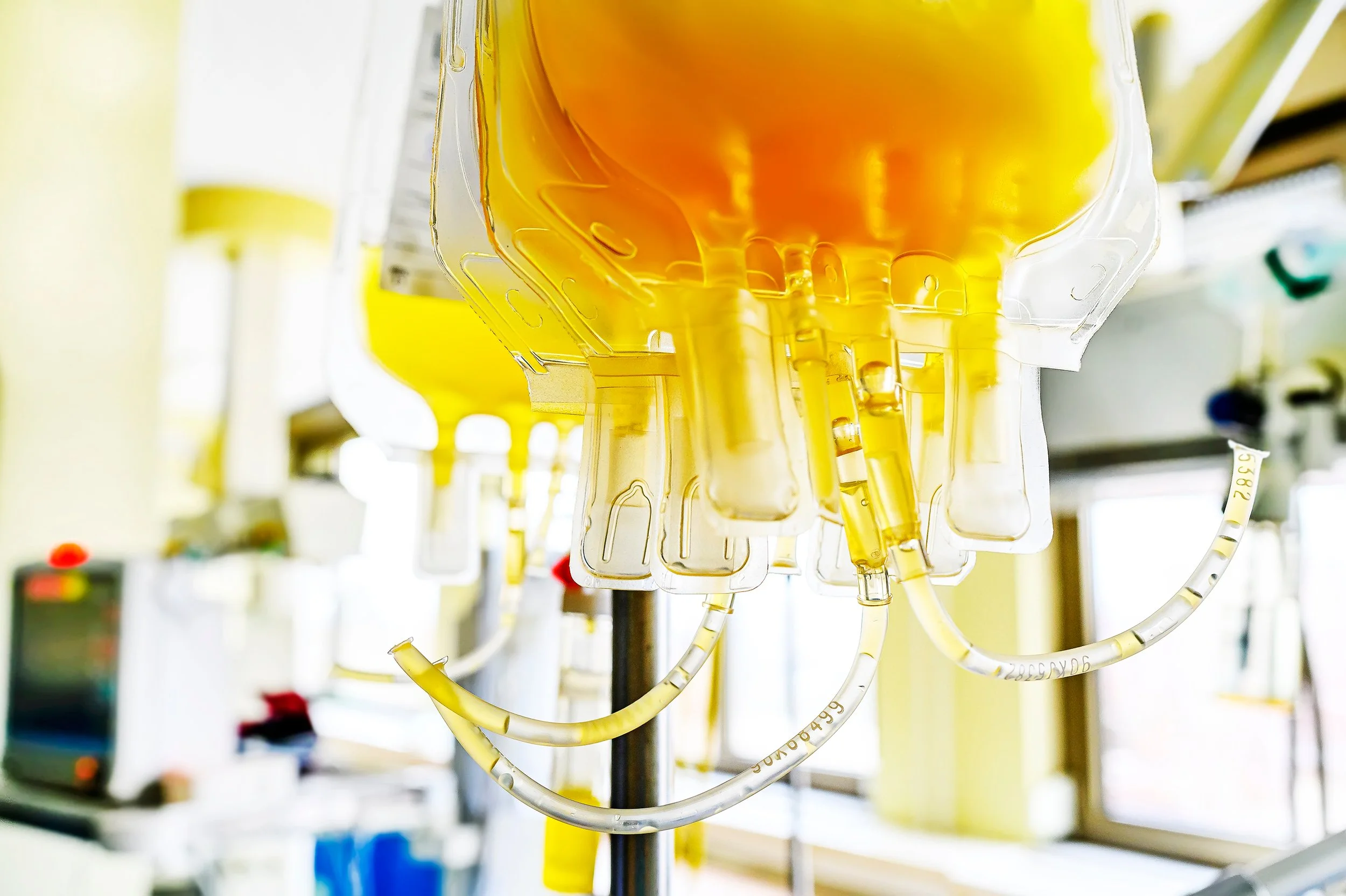
Why Plasma?
A number of plasma-derived medical products are included in the WHO Model List of Essential Medicines, emphasizing their importance in the health system and the need to facilitate access to these products in all countries. However, unequal access globally, especially scarcity in many low- and middle-income countries, leaves many patients with severe disorders without adequate treatment.
Plasma-derived therapies are treatments derived from human plasma, which are life-saving therapeutics commonly used to treat rare and life-threatening diseases resulting from trauma, congenital deficiencies, immunologic disorders and infections. Treatment with plasma-derived therapies has been shown to be very effective, significantly improving the life expectancy of rare disease patients, in addition to their quality of life. However, the availability of these valuable therapies depends entirely on human plasma donated by healthy individuals, which presents several challenges to the global supply.

The number of rare disease patients is increasing thanks to the ever-improving diagnostic possibilities, and as global demand for plasma and related vital therapies already far exceeds supply, the situation is set to worsen, resulting in more people around the world struggling to access the treatments they need, especially in low- and middle-income countries.
The goal of this initiative is to bring together all key actors to discuss the challenges related to plasma supply with the overall goal to improve access to plasma-derived therapies for rare disease patients. Through increasing awareness, building partnerships and facilitating access to the latest scientific knowledge and best practices, this platform aims to support countries in finding their own tailored solutions on how to improve the quality of life and life expectancy of patients who rely on plasma-derived therapies. The pilot phase of the current initiative will be implemented in collaboration with Argentina and Malaysia.

One of the major factors limiting the global availability of plasma-derived therapies is an inadequate supply of plasma meeting internationally recognized standards of quality. Another significant limiting factor is related to the restrictive regulations and policies that do not reflect latest research and scientific evidence. Geographic imbalance and over-reliance on only a few countries for plasma supply has created a fragile global structure at risk of severe shortage, thereby placing many lives at risk.
This platform was created as part of well-established partnership between United Nations Institute for Training and Research (UNITAR) and Takeda. UNITAR serves as a coordinator of the project, hosting the platform as a collaborative framework for stakeholders to meet, lead informed discussion and lay the groundwork for future collaboration. As a founding sponsor, Takeda serves as one of the knowledge partners providing plasma expertise, funding and project support.

